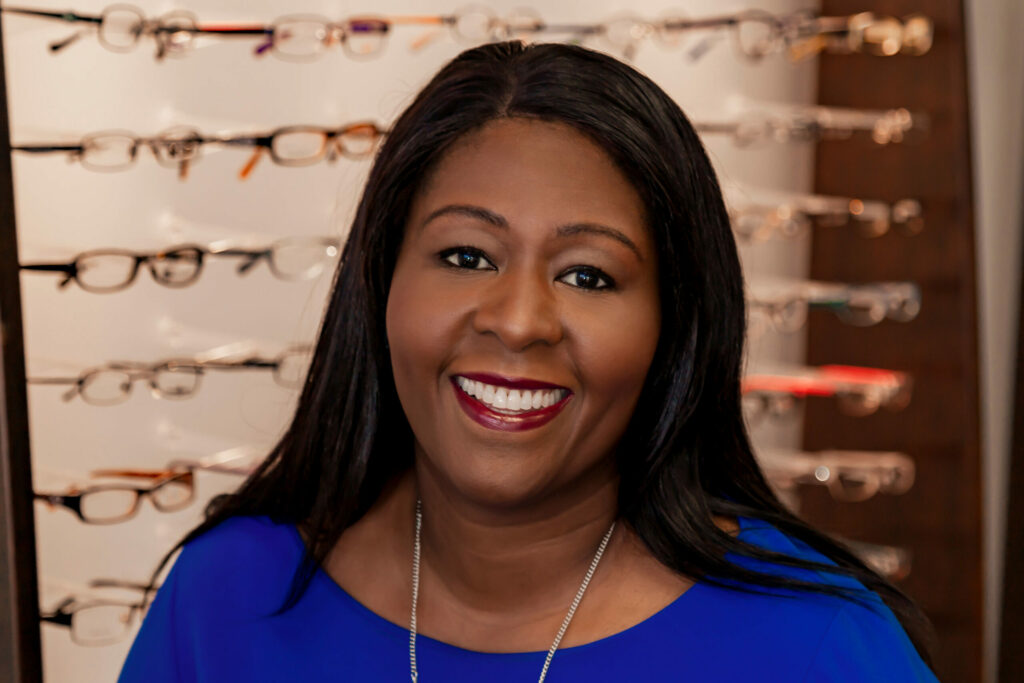Pay Yourself First: The Key to Building a Thriving Optometry Practice and Personal Wealth

“When you pay yourself first, what you’re really doing is putting yourself first.” ― David Bach, the author of Smart Women Finish Rich
As the CEO optometrist of your private practice, it’s easy to fall into the trap of “paying yourself last”. It’s easy to prioritize rent, staff wages, inventory, and utilities, thinking the business comes first. But here’s the truth: if you want a thriving business and personal financial success, you must pay yourself first.
Paying yourself isn’t just for business owners, it’s for everyone who wants financial freedom. If you work as an associate OD or have a corporate lease or work anywhere else, you owe it to yourself to keep some of the money you earn. Remember, financial health it’s not just about how much money you make, it’s about how much money you keep.
Paying yourself first isn’t a luxury, it’s a necessity—and it’s the first step toward building a financially sound practice and securing your future. In this blog, we’ll explore what it means to “pay yourself first” and how to make it work for you in multiple areas of life, from covering your household expenses to leaving a legacy for future generations.
Top 3 ways to pay yourself first:
1. Pay Yourself First as one of the company employees
If you work in your practice, you deserve a salary like your staff. This ensures you’re compensated for the time, energy, and expertise you invest in your practice. Many optometrists neglect this step, thinking the practice needs more money than they do. Your business will generate the amount of revenue you believe in. Keep in mind that your time is valuable. You deserve to get pay too.
By paying yourself first, you not only compensate yourself fairly; but also create a predictable income stream for your personal expenses. Take a reasonable salary consistent with your field, workload, and business entity. For questions about salary, and tax-saving strategies, consult with your accountant or financial advisors.
2. Pay Yourself as the CEO
As the CEO, your role isn’t just about providing patient care; it’s about leading, growing, and managing the business. Paying yourself a CEO reflects your efforts in expanding the practice, navigating challenges, and driving its success. You can start with 1-10% of your company’s net profit, and increase the amount as you grow. This compensation acknowledges the critical role you play in making strategic decisions and ensuring the business runs smoothly.
3. Pay Yourself as an Investor
Your practice is not just your place of work—it’s an investment—it’s one of your assets. As an investor, you should expect to see returns on the business you’ve built. A portion of the profits should be allocated to you as an investor in the form of dividends, shareholder draws or profit-sharing. Again, you can start with 1-10% of your company’s net profit, and increase the amount as you grow. As you continue to study successful business (S&P 500), you’ll find that their leaders, use the cash flow to build raining day funds, reinvest in the business for innovation and grow, and share the profits with their investors. Likewise, create a financial plan to include return on your investment.
What to do with the income or cashflow you receive from your practice:
1. Cover Your Household Expenses
Once you’ve paid yourself either as an employee, CEO, or investor, it’s time to ensure your household (the parent company) expenses are covered and there’s money to achieve your financial goals. Paying yourself first ensures that your personal expenses such as charitable donations, mortgage, utilities, groceries, vacations, and other essential expenses are taken care of. This keeps your finances in order, allowing you to focus on growing your practice without financial stress at home.
2. Build a “Rainy-Day Saving Fund” or an “Emergency Savings Fund“
Building a rainy day fund is crucial for both personal and business stability. Pay yourself first by setting aside a portion of your income to build a safety net that can cover unexpected expenses. Experts recommend having 3-12 months of expenses saved for emergencies, such as an economic downturn, personal illness, or business challenges.
3. Invest in Other Assets
After covering expenses, giving, and saving for emergencies, use your remaining cash flow to invest in other assets. This might include your own business, real estate, commodities, stocks, bonds, and other investments that will grow your wealth over time. Diversifying your investments for cash flow is a great way to build long-term financial security, separate from the success of your practice. Rely on your winning team to help you build and maintain your wealth.
4. Buy Insurance
Protecting yourself, your family, and your business from unforeseen events is crucial. From health insurance to disability coverage and professional liability insurance, paying yourself first means ensuring that these protections are in place. This safeguard can prevent catastrophic financial losses in the event of illness, injury, or lawsuits.
5. Pay Taxes
Taxes are inevitable, but with a solid financial plan in place, they don’t have to be stressful. By paying yourself first, you can set aside enough money to cover your taxes without scrambling at the last minute. Working with a good accountant to plan your taxes efficiently will also help you minimize your liability and maximize your deductions. Paying tax is part of the package of living in a world country. However, you don’t need to pay more than what’s required. Ask your accountant, tax attorney, and financial advisors to help you develop a tax-saving strategy that fits your situation.
6. Enjoy Everyday Life
Life isn’t just about work, giving, saving, and investing for the future. Paying yourself first allows you to enjoy the present moment—whether that means taking vacations, dining out, or indulging in hobbies. Financial security allows you the freedom to live a balanced and fulfilling life, without constantly worrying about money.
7. Leave a Legacy for the Next Generation
Finally, paying yourself first enables you to build a legacy that will outlive you. By growing your wealth and wisely managing and protecting your finances, you can leave behind something of value for your children, grandchildren, or even a cause that’s close to your heart. Whether through an inheritance, a family trust, a will, or charitable donations, your legacy will be a testament to your hard work and success.
Paying yourself first
This concept may seem simple, but it’s one of the most powerful steps you can take toward securing both your personal and business financial future. It ensures that you’re not only growing your practice but also building wealth that can sustain you and the generations that come after you. Start paying yourself first today! Start small and increase the amount as you grow. As one of my financial mentors said:
“If you don’t pay yourself first, you’ll never have the money you need to invest in assets that will lead to financial freedom in the future.” -Robert Kiyosaki
Join the Optometry Divas Community!
Are you ready to take control of your finances and your practice? If so, Click HERE to join the Optometry Divas community and our CEO of YOU business consulting program designed to help you thrive. We’ll help you design a plan to pay yourself first and build a thriving, profitable practice that supports the life you dream of!
Until next time, remember: Dream Big, Take Risks, and become the CEO of YOU™!
Disclaimer: The content of this blog is designed for educational purposes only and is not intended to replace professional advice. If you need financial, legal, accounting, and other professional advice, please hire a licensed professional in your area.





